This is an article I reprinted because I found that it comes at the right juncture: where people are asked to decide if they are going to be the cause of their own evolution, or if they are going to assume the worry for themselves… Worry means no action. It’s a pretense. It is the only recourse of the cowardly, impotent, and ineffective.
The 150 Things the World’s Smartest People Are Afraid of
Afraid Of What? By Brian Merchant
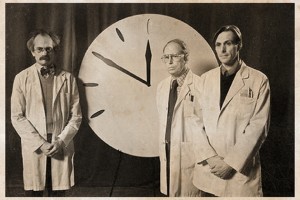 Every year, the online magazine Edge–the so-called smartest website in the world, helmed by science impresario John Brockman–asks top scientists, technologists, writers, and academics to weigh in on a single question. This year, that query was “What Should We Be Worried About?”, and the idea was to identify new problems arising in science, tech, and culture that haven’t yet been widely recognized.
Every year, the online magazine Edge–the so-called smartest website in the world, helmed by science impresario John Brockman–asks top scientists, technologists, writers, and academics to weigh in on a single question. This year, that query was “What Should We Be Worried About?”, and the idea was to identify new problems arising in science, tech, and culture that haven’t yet been widely recognized.
This year’s respondents include former presidents of the Royal Society, Nobel prize-winners, famous sci-fi authors, Nassem Nicholas Taleb, Brian Eno, and a bunch of top theoretical physicists, psychologists, and biologists. And the list is long. Like, book-length long. There are some 150 different things that worry 151 of the planet’s biggest brains. And I read about them all, so you don’t have to: here’s the Buzzfeedized version, with the money quote, title, or summary of the fear pulled out of each essay. Obviously, go read the rest if any of the below get you fretting too.
What keeps the smartest folks in the world awake at night? Here goes:
- The proliferation of Chinese eugenics. [note]Eugenics (/ju??d??n?ks/; from Greek eu, meaning “good/well”, and -gen?s, meaning “born”) is the belief and practice of improving the genetic quality of the human population.[2][3] It is a social philosophy advocating the improvement of human genetic traits through the promotion of higher reproduction of people with desired traits (positive eugenics), and reduced reproduction of people with less-desired or undesired traits (negative eugenics).[4][/note] – Geoffrey Miller, evolutionary psychologist.
- Black swan events, [note]What are Black Swan events?
A Black Swan event is an event in human history that was unprecedented and unexpected at the point in time it occurred. However, after evaluating the surrounding context, domain experts (and in some cases even laymen) can usually conclude: “it was bound to happen”. Even though some parameters may differ (such as the event’s time, location, or specific type), it is likely that similar incidences have had similar effects in the past.[/note] and the fact that we continue to rely on models that have been proven fraudulent. – Nassem Nicholas Taleb
- That we will be unable to defeat viruses by learning to push them beyond the error catastrophe threshold. – William McEwan, molecular biology researcher
- That pseudoscience will gain ground. – Helena Cronin, author, philosopher
- That the age of accelerating technology will overwhelm us with opportunities to be worried. – Dan Sperber, social and cognitive scientist
- Genuine apocalyptic events. The growing number of low-probability events that could lead to the total devastation of human society. – Martin Rees, former president of the Royal Society
- The decline in science coverage in newspapers. – Barbara Strauch, New York Times science editor
- Exploding stars, the eventual collapse of the Sun, and the problems with the human id that prevent us from dealing with them. — John Tooby, founder of the field of evolutionary psychology
- That the internet is ruining writing. – David Gelernter, Yale computer scientist
- That smart people–like those who contribute to Edge–won’t do politics. –Brian Eno, musician
- That there will be another supernova-like financial disaster. –Seth Lloyd, professor of Quantum Mechanical Engineering at MIT
- That search engines will become arbiters of truth. –W. Daniel Hillis, physicist
- The dearth [note]scarcity, lack[/note] of desirable mates is something we should worry about, for “it lies behind much human treachery and brutality.” –David M. Buss, professor of psychology at U of T
- “I’m worried that our technology is helping to bring the long, postwar consensus against fascism to an end.” –David Bodanis, writer, futurist
- That we will continue to uphold taboos on bad words. –Benhamin Bergen, Associate Professor of Cognitive Science, UCS
- Data disenfranchisement. –David Rowan, editor, Wired UK
- That digital technologies are sapping our patience and changing our perception of time. –Nicholas G. Carr, author
- An “underpopulation bomb.” –Kevin Kelly, editor-at-large, Wired.19. That funding for big experiments will dry up, and they won’t happen. –Lisa Randall, Harvard physicist
- “I worry that as the problem-solving power of our technologies increases, our ability to distinguish between important and trivial or even non-existent problems diminishes.” –Evgeny Morozov, contributing editor, Foreign Policy
- Not much. I ride motorcycles without a helmet. –J. Craig Venter, genomic scientist
- Catharsis is a transcendent joy that—can you repeat question? –Andrian Kreye, editor, German Daily Newspaper
- “I’ve given up asking questions. l merely float on a tsunami of acceptance of anything life throws at me… and marvel stupidly.” (complete answer)–Terry Gilliam
- “We should be worried about the new era of Anthropocene—not only as a geological phenomenon, but also as a cultural frame.”–Jennifer Jacquet, clinical assistant professor of environmental studies, NYU
- Cultural extinction, and the fact that the works of an obscure writer from the Caribbean may not get enough attention. –Hans Ulrich Obrist. curator, Serptine Gallery
- The Danger Of Inadvertently Praising Zygomatic Arches. –Robert Sopolsky, neuroscientist
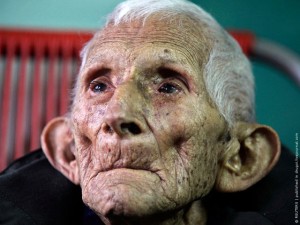
- That we will stop dying. –Kate Jeffery, professor of behavioural neuroscience
- That there are an infinity of universes out there, but that we are only able to study the one we live in. –Lawrence M. Krauss, physicist/cosmologist
- The rise of anti-intellectualism and the end of progress. “We’ve now, for the first time, got a single global civilization. If it fails, we all fail together.” –Tim O’Reilly, CEO and founder of O’Reilly Media
- We should worry about several “modern” States that, in practical terms, are shaped by crime; States in which bills and laws are promulgated by criminals and, even worse, legitimized through formal and “legal” democracy. – Eduardo Salcedo-albaran, Colombian philosopher
- “We should worry that so much of our science and technology still uses just five main models of probability—even though there are more probability models than there are real numbers.” –Bart Kosko, information scientist
- “It is possible that we are rare, fleeting specks of awareness in an unfeeling cosmic desert, the only witnesses to its wonder. It is also possible that we are living in a universal sea of sentience, surrounded by ecstasy and strife that is open to our influence. Sensible beings that we are, both possibilities should worry us.” Timo Hannay, publisher
- Men. –Helen Fisher, biological anthropologist
- The social media-fication of science writing. –Michael I. Norton, Harvard Business School prof
- Humanity’s unmitigated arrogance. –Jessica L. Tracy, professor of psychology
- That technology may endanger democracy. –Haim Harari, physicist
- Don’t worry—there won’t be a singularity. –Bruce Sterling, sci-fi author

- Mutually-assured destruction. –Vernor Vinge, mathematician, computer scientist, author
- “The diversion of intellectual effort from innovation to exploitation, the distraction of incessant warfare, rising fundamentalism” may trigger a Dark Age. –Frank Wilczek, MIT physicist
- We need institutions and cultural norms that make us better than we tend to be. It seems to me that the greatest challenge we now face is to build them. –Sam Harris, neuroscientist
- “I worry that we don’t really understand quantum phenomena” –Lee Smolin, physicist
- That Americans are homogenizing and exporting their view of a normal mind around the world. –P. Murali Doraiswamy, professor of psychiatry
- The future of science publishing. –Marco Iacoboni, neuroscientist
- That the new digital public sphere isn’t really so public. –Andrew Lih, journalism professor
- “I further postulate we should in fact be “Worried” not just about a single selected problem, but about all possible problems.” –Richard Foreman, playwright and director
- Stress. –Arianna Huffington, aggregationist extraordinaire
- “We should be worried that science has not yet brought us closer to understanding cancer.” Xeni Jardin, Boing Boing
- That we will literally lose touch with the physical world. –Christine Finn, archaeologist.
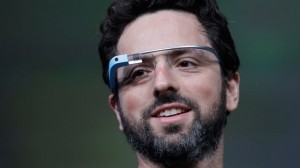
- “We should all be worried about the gaping psychological chasm separating humanity from nature” –Scott Sampson, dinosaur paleontologist.
- That we are becoming too connected. –Gino Segre, professor of physics & astronomy
- That we will worry too much. –Joseph LeDoux, neuroscientist
- “What worries me is that we are increasingly enmeshed in incompetent systems, that is, systems that exhibit pathological behaviour but can’t fix themselves.” –John Naughton, Edge editor
- Too much coupling. –Steven Strogatz, professor of applied mathematics, Cornell
- That the internet will end up benefiting existing power structures and not society in general. –Bruce Schneier, security technologist
- That this year’s Edge topic has been poorly chosen. –Kai Krause, software pioneer
- That we will see the end of fundamental science –Mario Livio, astrophysicist
- The paradox of material progress. –Rolf Dobelli, journalist and author
- That we will become like rats stuck in a blue marble trap. –Gregory Benford, prof of physics and astronomy
- That humankind will stop pursuing close observation. –Ursula Martin, computer scientist
- “What worries me is the ongoing “greying” of the world population, which is uneven globally but widespread.” –David Berreby, journalist and author
- “We should be worrying about a growing dominance of the Fourth [pop] Culture and how it may directly or indirectly affect us all.” –Bruce Parker, professor
- The coming fight between engineers and druids. –Paul Saffo, technology forecaster
- “As someone fairly committed to the death of our solar system and ultimately the entropy of the universe, I think the question of what we should worry about is irrelevant in the end.” –Bruce Hood, mondo-bummer

- A scarcity of water resources. –Giulio Boccaletti, physicist
- That we “are inarticulately lost in Modernity. Many of us seem to sense the end of something, perhaps a futile meaninglessness in our Modernity.” — Stuart A. Kauffman, professor of biological sciences, physics, and astronomy
- “I worry about the lost opportunity of denying the world’s teenagers access to education.” Sarah-Jayne Blakemore
- Augmented reality. –William Poundstone, journalist.
- That big data and new media will mean the end of facts. –Victoria Stodden, computational legal scholar, statistics professor
- That we will spend too much time on social media. –Marcel Kinsbourne, neurologist
- That Idiocracy is looming. –Douglas T. Kenrick, psychology professor
- That the gap between news and understanding is widening. –Gavin Schmidt, NASA climatologist
- “I worry we have yet to have a conversation about what seems to be a developing “new normal” about the presence of screens in the playroom and kindergarten” –Sherry Turkle, pshcyhologist, MIT
- “That we will become irrationally impatient with science” –Stuart Firestein, professor who is working as hard as he can, dammit
- That we will get our hopes up for interstellar space travel, because it’s not going to happen. –Ed Regis, science writer
- That global cooperation is failing and we don’t know why. –Daniel Haun
- That we worry too much. –Joel Gold, psychiatrist
- “I worry more and more about what will happen to the generations of children who don’t have the uniquely human gift of a long, protected, stable childhood.” –Alison Gopnik

- That synthetic biology will spiral out of control. –Seirian Summer, lecturer in behavioral biology
- The death of mathematics. –Keith Devlin, mathematician
- That we will outsource too many skills to machines. –Susan Blackmore, psychologist
- “We should be worried about online silos. They make us stupid and hostile toward each other.” –Larry Sanger, co-founder of Wikipedia
- That we worry too much. –Gary Klein, scientist at MacroCognition
- That the human species will lose the will to survive. –Dave Winer, Blogging and RSS software pioneer
- The surplus of testosterone caused by a gender gap in China. –Robert Kurzban, psychologist
- “A worry that is not yet on the scientific or cultural agenda is neural data privacy rights” –Melanie Swan, systems-level thinker, futurist
- Armageddon. –Timothy Taylor, archaeologist
- There’s nothing to worry about, even though the Large Hadron Collider hasn’t turned up any new discoveries. –Amanda Gefter, editor
- “What I worry most about is that we are more and more losing the formal and informal bridges between different intellectual, mental and humanistic approaches to seeing the world.” –Anton Zeilinger, physicist
- That we worry too much. –Donald D. Hoffman, cognitive scientist
- The Growing Gap Between The Scientific Elite And The Vast “Scientifically Challenged” Majority — Leo M. Chalupa, ophthalmologist and neurobiologist
- “I worry about the prospect of collective amnesia.” –Nogra Arikha, historian of ideas
- That we worry too much. –Brian Knutson, associate professor of psychology
- That we do not understand the dynamics of our emerging global culture. –Kirsten Bomblies, assistant professor of organismic and evolutionary biology

- “We should worry about losing lust as the guiding principle for the reproduction of our species.” –Tor Norretranders, science writer
- That we worry too much, but about fictional violence. –Jonathan Gottschall, English professor
- “We should be worried about the consequences of our increasing knowledge of what causes disease, and its consequences for human freedom” –Esther Dyson, Catalyst, Information Tech Startups
- Natural death. –Antony Garrett Lisi, theoretical physicist
- “What worries me is that the debate about gender differences still seems to polarize nature vs. nurture, with some in the social sciences and humanities wanting to assert that biology plays no role at all, apparently unaware of the scientific evidence to the contrary” — Simon Baron-Cohen, psychologist
- The demise of the scholar. –Daniel L. Everett, linguistic researcher
- The Unavoidable Intrusion Of Sociopolitical Forces Into Science. –Nicholas A Christakis, physician
- “I am worried about who gets to be players in the science game—and who is left out.” –Stephon H. Alexander, physicist
- The fact that so many people choose to live in ways that narrow the community of fate to a very limited set of others and to define the rest as threatening to their way of life and values is deeply worrying because this contemporary form of tribalism, and the ideologies that support it, enable them to deny complex and more crosscutting mutual interdependencies—local, national, and international—and to elude their own role in creating long-term threats to their own wellbeing and that of others.” –Margaret Levi, political scientist
- That we will be unable to facilitate effective synergies. –Stephen M. Kosslyn, Robin S. Rosenberg, psychologists, synergy fans
- I’m not worried about Super-AIs ruling the world. –Andy Clark, philosopher and cognitive scientist
- The posthuman geography that will result when robots have taken all our jobs. –David Dalrymple, MIT researcher

- That aliens pose a danger to human civilization. –Seth Shostak, SETI astronomer
- That the role of microorganisms in cancer is being ignored by the current sequencing strategies employed by the medical community. –Azra Raza, M.D.
- That humankind’s social and moral intuitions will stifle technological process. –David Pizarro, psychologist
- “The illusion of knowledge and understanding that can result from having information so readily and effortlessly available.” — Tania Lombrozo, assistant professor of psychology
- The end of hardship inoculation –Adam Alter, psychologist
- The exploding number of illegal drugs. –Thomas Metzinger, philosopher
- Superstition. –Matt Ridley, science writer
- That historically entrenched institutions will prevent technological progress. –Paul Kedrosky, editor

- That “in one or two generations children will grow up to be adults who will not be able to tell reality from imagination.” –Mihaly Csikszentmihalyi, psychologist
- That we worry too much. –Virginia Heffernan, Yahoo News correspondent
- “We should be worried about how we go about finding the wisdom to allow us to navigate developments as we begin to improve our ability to cheaply print human tissue, grow synthetic brains, have robots take care of our old parents, let the Internet educate our children” –Luca De Biase, journalist
- That genomics may fail us when it comes to mental disorders. –Terrence J. Sejnowski, computational neuroscientist
- “What really keeps me awake at night is that we face a crisis within the deepest foundations of physics. The only way out seems to involve profound revision of fundamental physical principles.” –Steve Giddings, theoretical physicist
- “The most worrying aspect of our society is the low index of suspicion that we have about the behavior of normal people.” –Karl Sabbagh, writer, TV producer
- “Many people worry that there is not enough democracy in the world; I worry that we might never go beyond democracy.” –Dylan Evans, CEO of Projection Point
- Not population growth, but prosperity growth—the prospect of the entire world consuming resources like Americans and Westerners do. –Laurence C. Smith, geography professor
- That we’ll begin to treat technology like magic. –Neil Gershenfeld, MIT physicist
- The rise in genomic instability. –Eric J. Topol, M.D., professor of genomics
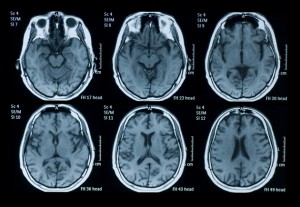
- That authorities and companies will soon be able to read people’s brains. –Stanislas Dehaene, neuroscientist
- That economic growth will halt. –Satyajit Das, financial expert
- “I worry that free imagination is overvalued, and I think this carries risks.” –Carlo Rovelli, theoretical physicist
- That we worry too much. –James J. O’Donnell, classical scholar
- That we worry too much. –Robert Provine, neuroscientist
- That we won’t have enough robots to do all the jobs we’ll need them to do in coming decades. –Rodney A. Brooks, roboticist
- That we will have no Plan B when the internet inevitably breaks down. –George Dyson, science historian
- The Singularity. That we “are curiously complacent about life as we know it getting transformed. What we should be worried about is that we’re not worried.” –Max Tegmark, MIT physicist
- “There are known knowns and known unknowns, but what we should be worried about most is the unknown unknowns.” –Gary Marcus, cognitive scientist
- That the brain is unable to conceive of our most serious problems. –Daniel Goleman, psychologist
- “We should be worried that scientists have given up the search for determining right and wrong and which values lead to human flourishing just as the research tools for doing so are coming online” –Michael Shermer, publisher, Skeptic magazine
- The loss of our collective cognition and awareness. –Douglass Rushkoff, media analyst
- The decline of the science hero. –Roger Highfield, Director, Science Museum Group
- That we are unable to identify “the good life.” –David Christian, historian
- Electric tattooing on Facebook and beyond. –Juan Enriquez
- Federal regulatory capture—ie, the fox watching the hen house in industries like oil and coal extraction. –Charles Seife, journalism professor
- “Society’s Parlous Inability To Reason About Uncertainty” –Aubrey De Grey, Gerontologist
- That knowledge is getting too fast. –Nicholas Humphrey, prof. at the London School of Economics
- The “Nightmare Scenario” For Fundamental Physics. Peter Woit, mathematical physicist
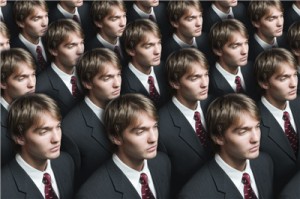
- The homogenization of the human experience. –Scott Atran, anthropologist
- That we won’t be able to understand everything. –Clifford Pickover, math author
- That we worry too much, and “package our worries” in a deleterious fashion. –Mary Catherine Bateson, professor emerita
- That because of climate change, resource shortages, drones, or other unanticipated reasons, a major war will arise. –Steven Pinker, psychologist
- Stupidity. –Roger Schank, psychologist
- I have stopped worrying about the problem of free will, because it will never be settled. –Howard Gardner, Hobbs Professor of Cognition and Education
- That science is in danger of becoming the enemy of humankind. –Colin Tudge, biologist, editor at New Scientist
- That we will be unable to live without the internet. –Daniel C. Dennet, philosopher
Read the original article: Thought provoking: the planet’s smartest people have a narrow cone of vision…
